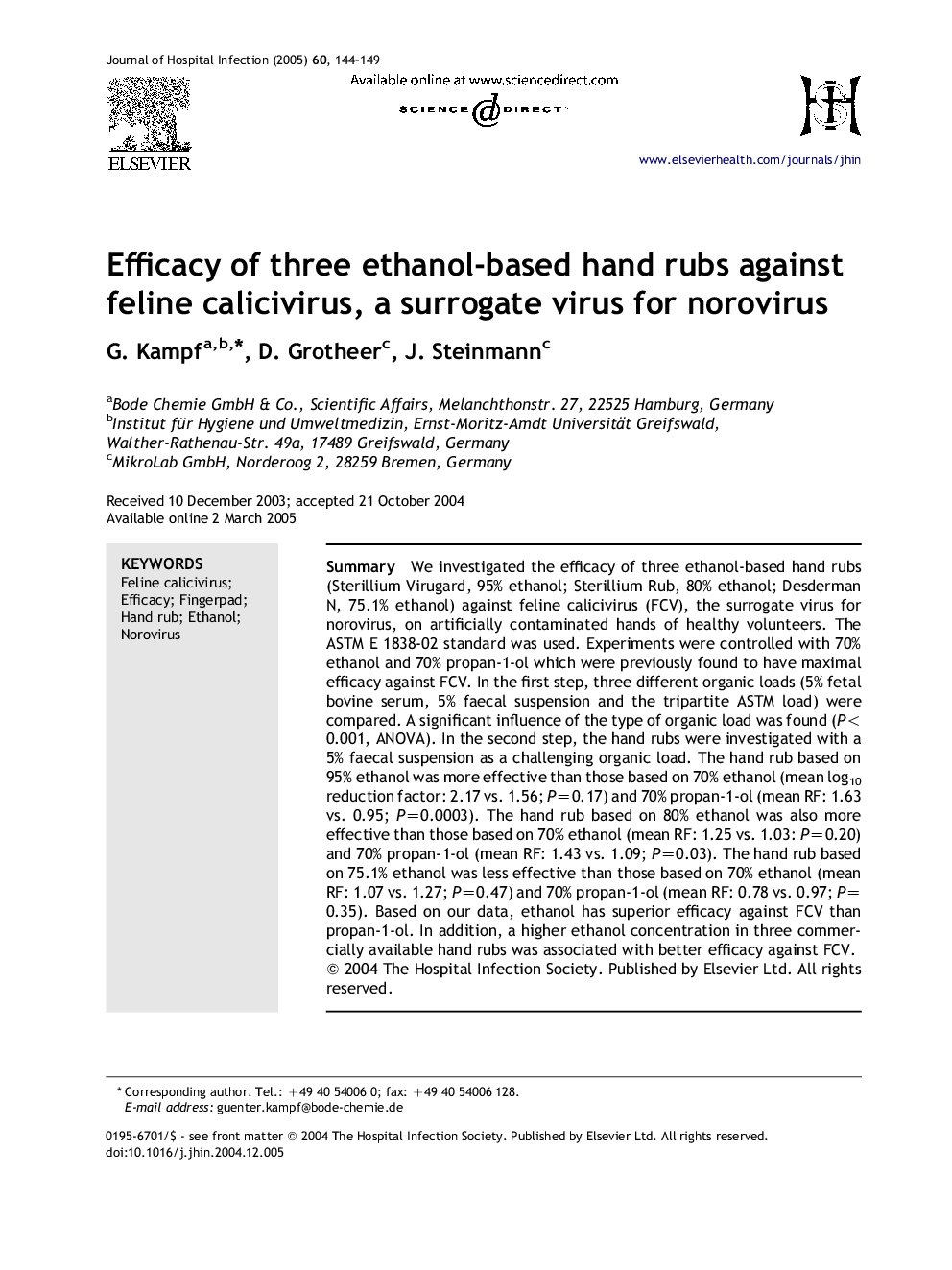| Article ID | Journal | Published Year | Pages | File Type |
|---|---|---|---|---|
| 9269359 | Journal of Hospital Infection | 2005 | 6 Pages |
Abstract
We investigated the efficacy of three ethanol-based hand rubs (Sterillium Virugard, 95% ethanol; Sterillium Rub, 80% ethanol; Desderman N, 75.1% ethanol) against feline calicivirus (FCV), the surrogate virus for norovirus, on artificially contaminated hands of healthy volunteers. The ASTM E 1838-02 standard was used. Experiments were controlled with 70% ethanol and 70% propan-1-ol which were previously found to have maximal efficacy against FCV. In the first step, three different organic loads (5% fetal bovine serum, 5% faecal suspension and the tripartite ASTM load) were compared. A significant influence of the type of organic load was found (P<0.001, ANOVA). In the second step, the hand rubs were investigated with a 5% faecal suspension as a challenging organic load. The hand rub based on 95% ethanol was more effective than those based on 70% ethanol (mean log10 reduction factor: 2.17 vs. 1.56; P=0.17) and 70% propan-1-ol (mean RF: 1.63 vs. 0.95; P=0.0003). The hand rub based on 80% ethanol was also more effective than those based on 70% ethanol (mean RF: 1.25 vs. 1.03: P=0.20) and 70% propan-1-ol (mean RF: 1.43 vs. 1.09; P=0.03). The hand rub based on 75.1% ethanol was less effective than those based on 70% ethanol (mean RF: 1.07 vs. 1.27; P=0.47) and 70% propan-1-ol (mean RF: 0.78 vs. 0.97; P=0.35). Based on our data, ethanol has superior efficacy against FCV than propan-1-ol. In addition, a higher ethanol concentration in three commercially available hand rubs was associated with better efficacy against FCV.
Related Topics
Life Sciences
Immunology and Microbiology
Applied Microbiology and Biotechnology
Authors
G. Kampf, D. Grotheer, J. Steinmann,
